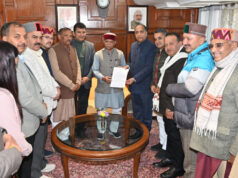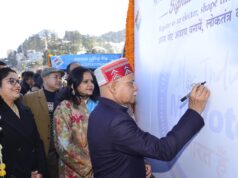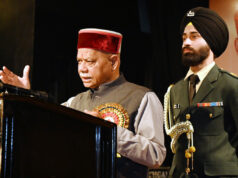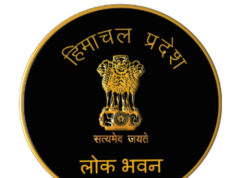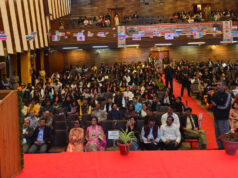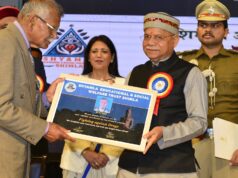In a recent turn of events, Governor Shiv Pratap Shukla has made it clear that he lacks the authority to issue directives regarding the acceptance of resignations tendered by three independent MLAs. While addressing journalists informally at Raj Bhavan on Thursday, Governor Shukla underscored that the jurisdiction over this matter firmly rests with the Assembly Speaker.
Despite the independent MLAs’ appeal for intervention, Governor Shukla emphasized the constitutional limitations inhibiting Raj Bhavan from interfering in the affairs pertaining to resignation acceptance. “The Raj Bhavan cannot interfere in this,” he affirmed, reiterating his stance during the interaction.
Governor Shukla drew attention to the legal precedents, particularly referencing the Supreme Court’s directives in similar cases. “According to the decision of the Supreme Court, if the MLA gives the letter personally, then it should be accepted,” he elucidated. Citing instances from Madhya Pradesh and Karnataka, he highlighted the judiciary’s inclination towards immediate acceptance of resignations submitted directly to the Speaker.
“The Supreme Court has unequivocally ruled that if the MLAs personally submit their resignations to the Speaker, it should be accepted,” Governor Shukla reiterated, underscoring the judicial precedence. However, he reiterated that his role is confined to providing advice, devoid of any constitutional authority.
“If there is dissatisfaction with the decision of the Assembly Speaker, then they can go to court,” Governor Shukla suggested, outlining the available recourse for aggrieved parties. Expressing satisfaction with the Speaker’s response, he emphasized adherence to the court’s directives for the prompt acceptance of resignations.
The three independents first submitted their resignations to the Assembly Secretary and then to the Speaker. All three have also provided a copy of the resignation letter to the Vidhan Sabha Speaker.
As the imbroglio surrounding the resignations of the three independent MLAs persists, Governor Shukla’s stance underscores the delicate balance between constitutional roles and judicial imperatives in the realm of state governance.



